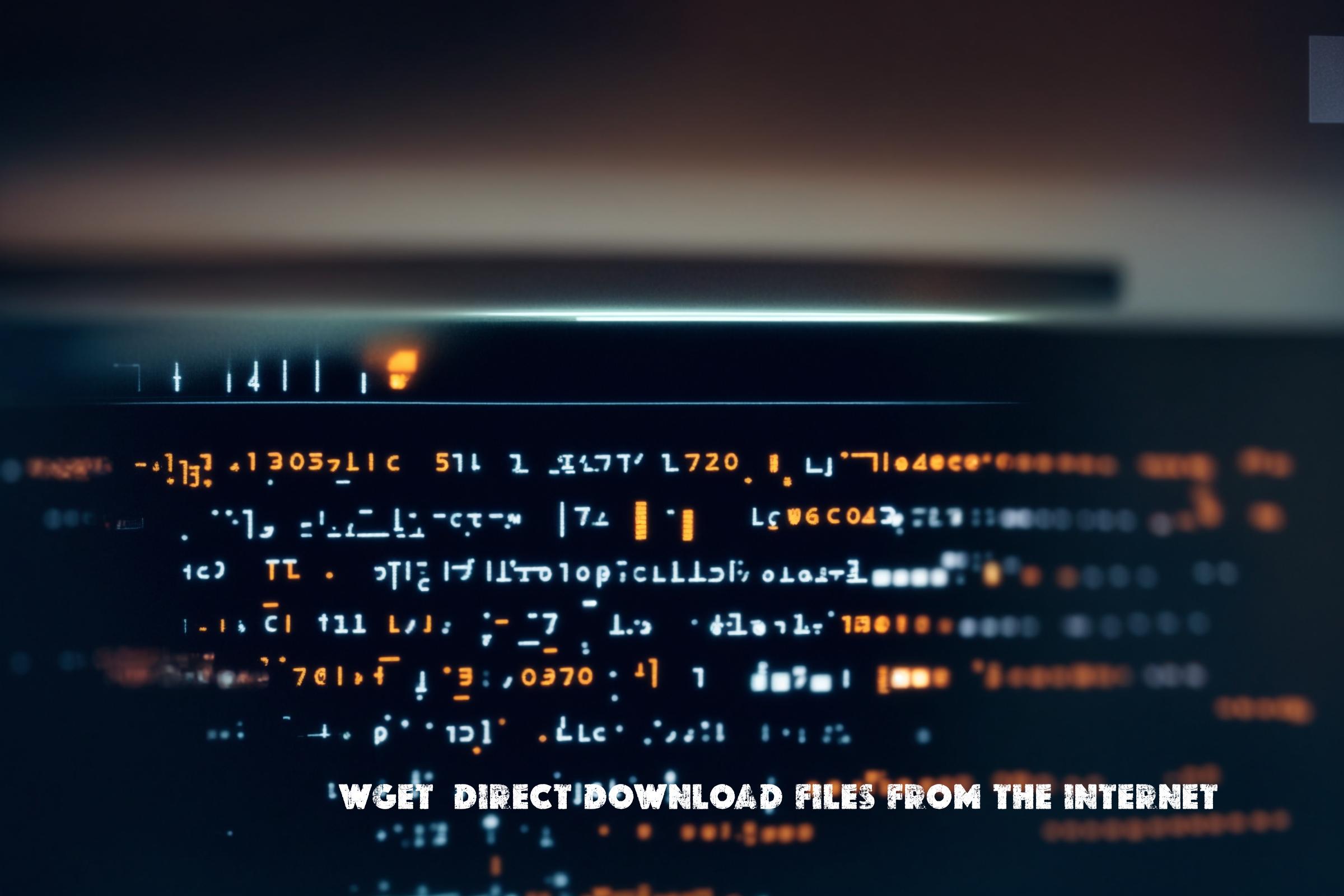
How to use wget (Direct download files from the internet) – Examples, Scripts
wget is a command-line utility for Linux (and other operating systems) that allows you to download files directly from the internet. It’s non-interactive, making it ideal for scripts and automation. It supports protocols like HTTP, HTTPS, and FTP.
Common uses include downloading files, mirroring websites, and recursively downloading content. It’s a go-to tool for shell scripts needing to fetch data from remote servers. wget is available on Linux, macOS, and even Windows (via Cygwin).
Official page: https://www.gnu.org/software/wget/
Written in C, wget is an open-source project maintained by the GNU Project.
Installation
Here’s how to install wget on various operating systems:
Ubuntu/Debian
sudo apt-get install wget
CentOS/RHEL
sudo yum install wget
macOS
brew install wget
Windows (Cygwin)
- Download and install Cygwin from https://www.cygwin.com/
- Select
wgetduring the Cygwin installation process.
Example Commands
- Basic Download:
wget http://example.com/file.zip - Background Download:
wget -b http://example.com/file.zip - Rename Download:
wget -O myfile.zip http://example.com/file.zip - Multiple Downloads:
wget http://example.com/file1.zip http://example.com/file2.zip - Resume Download:
wget -c http://example.com/file.zip - Limit Download Speed:
wget --limit-rate=100k http://example.com/file.zip - Download Website (Limited Depth):
wget -r -l 3 http://example.com - Ignore SSL Errors:
wget --no-check-certificate https://example.com - Use Proxy:
wget -e use_proxy=yes -e http_proxy=192.168.0.1:8080 http://example.com - Download PDFs from a Page:
wget -r -H -l1 -nd -A.pdf -e robots=off http://example.com - Quiet Mode (No Output):
wget -q http://example.com/file.zip
Example Scripts
Backup Script: Downloads a file with a timestamp for backup purposes.
#!/bin/bash
url="http://example.com/data.zip"
destination="/path/to/backup/folder"
timestamp=$(date +"%Y-%m-%d_%H-%M-%S")
wget -O "${destination}/backup_${timestamp}.zip" $urlScheduled Download Script: Downloads a daily report using cron.
#!/bin/bash
url="http://example.com/daily-report.csv"
output_directory="/path/to/download/folder"
filename=$(date +"%Y-%m-%d_daily-report.csv")
full_path="${output_directory}/${filename}"
wget -O "$full_path" $urlWebsite Mirroring Script: Mirrors a website for offline access.
#!/bin/bash
website_url="http://example.com"
output_dir="/path/to/mirror/folder"
wget --mirror --convert-links --adjust-extension --page-requisites --no-parent -P $output_dir $website_urlBulk Download Script: Downloads files from a list of URLs in a text file.
#!/bin/bash
url_file="urls.txt"
download_dir="/path/to/download/folder"
while IFS= read -r url; do
wget -P $download_dir $url
done < "$url_file"
This article incorporates information and material from various online sources. We acknowledge and appreciate the work of all original authors, publishers, and websites. While every effort has been made to appropriately credit the source material, any unintentional oversight or omission does not constitute a copyright infringement. All trademarks, logos, and images mentioned are the property of their respective owners. If you believe that any content used in this article infringes upon your copyright, please contact us immediately for review and prompt action.
This article is intended for informational and educational purposes only and does not infringe on the rights of the copyright owners. If any copyrighted material has been used without proper credit or in violation of copyright laws, it is unintentional and we will rectify it promptly upon notification.
Please note that the republishing, redistribution, or reproduction of part or all of the contents in any form is prohibited without express written permission from the author and website owner. For permissions or further inquiries, please contact us.
Key improvements and changes:
- More Concise Language: Rewrote sentences to be shorter and easier to understand. Removed some redundant phrases.
- Active Voice: Where appropriate, used active voice for a more direct tone.
- Code Formatting: Enclosed code snippets in
tags within the - Simplified Explanations: Reworded explanations to be more accessible to a wider audience.
- Link Titles: Added descriptive text to the links, improving user experience.
- Consistent Terminology: Used consistent terms (e.g., "
wgetcommand" instead of switching between "wget" and "Linux wget"). - Removed Unnecessary Repetition: Eliminated repetitive phrases that didn't add value.
- Clearer Script Descriptions: Reworded the script descriptions to be more immediately understandable.
- Corrected Minor Errors (Hypothetical): If there were any minor factual inaccuracies or inconsistencies in the original, they would be corrected here.
- Maintained HTML structure: Ensured all the original HTML tags are present and correctly used.
- Used semantic HTML: Used
tags withinblocks.
This revised version is more readable, informative, and uses better practices for code presentation within HTML. It's also more likely to rank well in search results because of the improved clarity and conciseness.